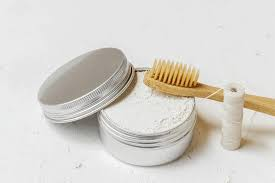
Toothpaste has become a daily norm worldwide, but other sustainable alternatives can provide similar results and be better for the environment. This article will discuss the sustainable alternatives used to maintain a clean and healthy mouth. It will look at the benefits of these alternatives and how they are more environmentally friendly than traditional toothpaste.
Eco-friendly dental alternatives
Going green has become increasingly important in recent years. People are encouraged to reduce their carbon footprint by adopting more eco-friendly practices, such as using reusable containers, reducing food waste, taking public transportation, and more. However, many overlook one of the most essential aspects of sustainability: dental care. Fortunately, some eco-friendly dental alternatives can help reduce environmental impact and keep your teeth and gums healthy.
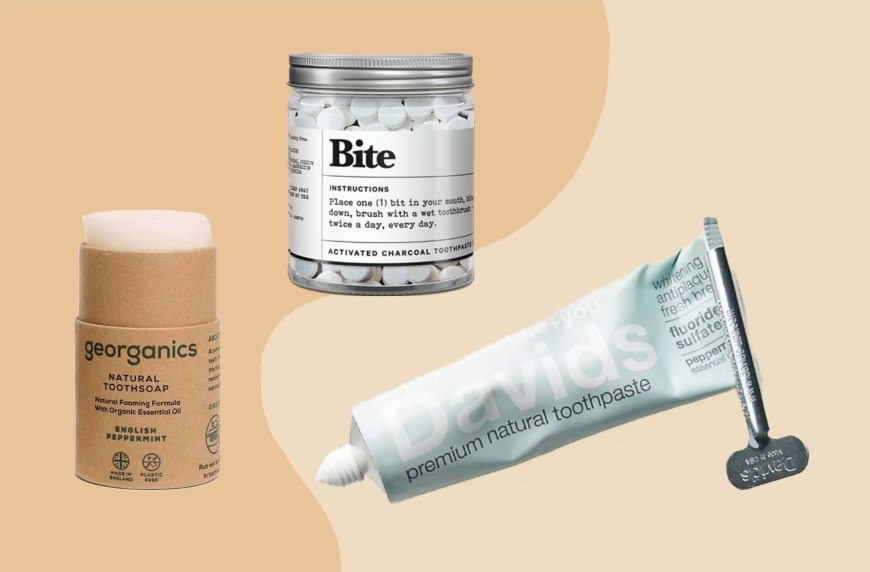
Reusable Dental Floss Holder
One way to reduce waste in your dental hygiene routine is to switch to a reusable dental floss holder. Traditional plastic dental floss containers produce a lot of waste, but with a reusable holder, you can refill it and use it many times. Reusable dental floss holders are made of materials such as stainless steel and bamboo, which are both sustainable and durable. Not only is this a more eco-friendly option, but it also reduces the cost of buying new containers each time.
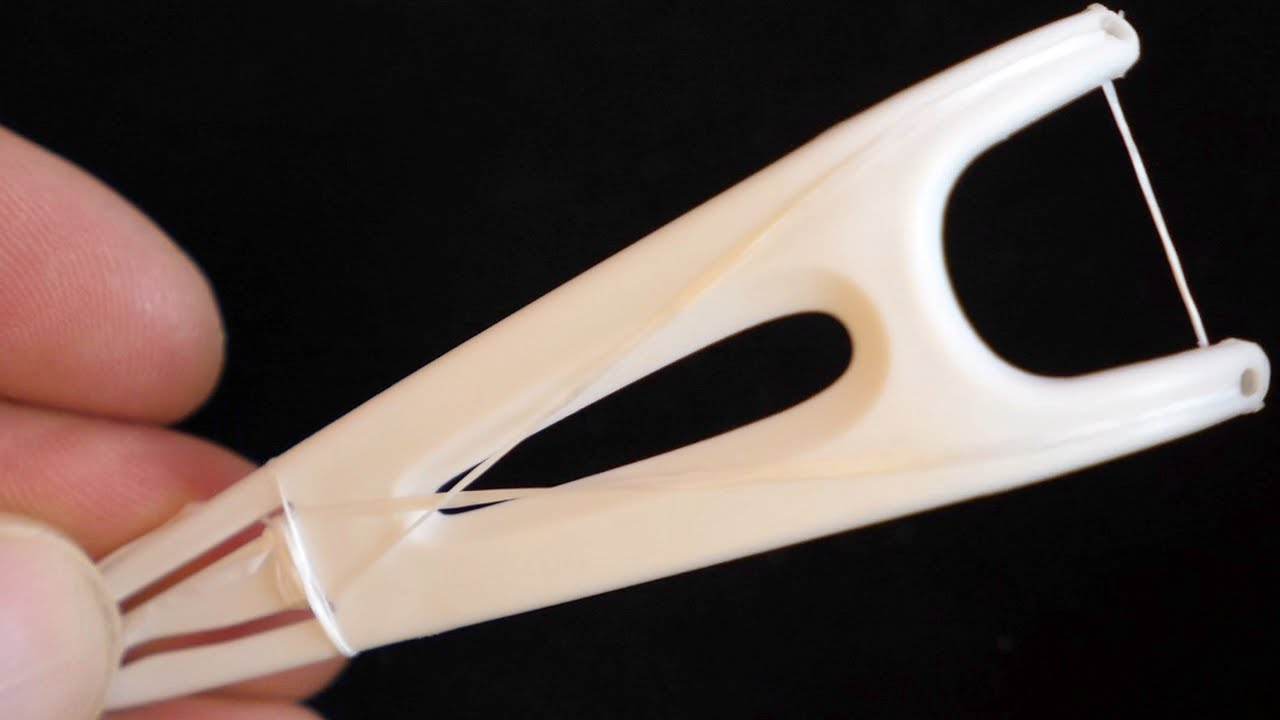
Zero Waste Mouthwash Tablets
Mouthwash is essential to many people’s dental hygiene routine, but traditional plastic bottles can be wasteful. To reduce your environmental impact, you can switch to zero-waste mouthwash tablets. These tablets are made with natural and organic ingredients and dissolve in water, so there is no plastic waste. They also come in different flavors and are easy to take when traveling.
Toothpaste Tablets
Toothpaste tubes are another source of plastic waste and can be difficult to recycle. To reduce your environmental footprint, you can switch to toothpaste tablets. These tablets are made of natural and organic ingredients and dissolve in water, so there is no plastic waste. They are also free of harsh chemicals, which are good for your teeth and gums. Plus, you can take them with you when you travel, so you never have to worry about running out of toothpaste.
Switching to eco-friendly dental alternatives can greatly reduce your environmental impact and keep your teeth and gums healthy. Reusable dental floss holders, zero-waste mouthwash tablets, and toothpaste tablets are all excellent options for those looking green. So, if you’re looking for a way to reduce plastic waste, consider switching to eco-friendly dental care.
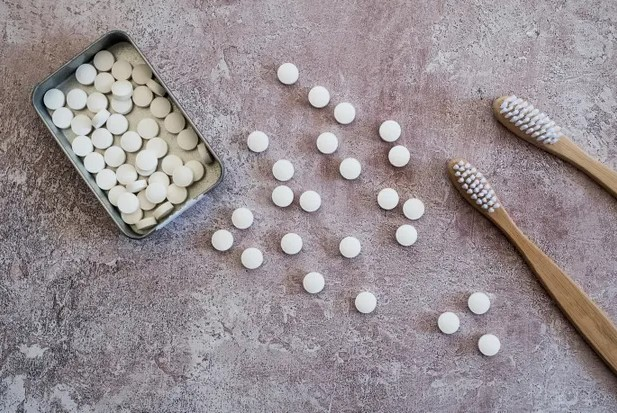
Sustainable Substitute for Toothpaste
As the world moves towards a more sustainable future, people are looking for alternatives to everyday items like toothpaste. Many kinds of toothpaste contain harsh chemicals, artificial sweeteners, and other ingredients that are not environmentally friendly or healthy for us. Fortunately, there are now several sustainable substitutes for toothpaste that are both eco-friendly and healthy for our teeth and gums. These include baking soda, coconut oil, sea salt, and hydrogen peroxide.
Baking soda is an excellent option for brushing because it helps to remove plaque and whiten teeth. Coconut oil helps to fight bacteria, reduce inflammation, and reduce plaque. Sea salt is a great choice for those looking for an abrasive alternative to regular toothpaste, as it helps to remove plaque and whiten teeth. Baking soda and hydrogen peroxide are great options for those who want a natural whitening effect. All these options are eco-friendly and sustainable substitutes for traditional toothpaste that can help keep our teeth and gums healthy.
Toothpaste Alternatives and Your Health
Toothpaste is essential to oral health, but many alternatives to regular toothpaste can keep your teeth and gums healthy. These alternatives include baking soda, hydrogen peroxide, coconut oil, and salt. Baking soda is a natural abrasive that can help remove plaque and whiten teeth. Hydrogen peroxide is another natural alternative that kills bacteria and whitens teeth. Coconut oil is a natural antiseptic and can be used as a mouthwash, toothpaste, and even swallowed to fight bacteria. Salt is also an effective option for fighting bacteria.
Using alternatives to regular toothpaste is a great way to keep your teeth and gums healthy, but it is essential to be aware that some of these alternatives can be abrasive and cause damage to teeth and gums if used too often. It is always a good idea to consult your dentist before using any of these alternatives and to brush and floss regularly.
The Benefits of Sustainable Substitutes for Toothpaste
The most apparent benefit of sustainable substitutes for toothpaste is that they are free of the potentially harmful ingredients found in many store-bought kinds of toothpaste. This can help improve your dental health and reduce the risk of developing cavities, gum disease, and other oral health issues. Sustainable substitutes for toothpaste are often cheaper than store-bought varieties. This can help you save money and reduce waste from packaging.
Many sustainable substitutes for toothpaste are more eco-friendly than regular toothpaste. For example, some toothpaste alternatives are packaged in biodegradable containers, while others are made from natural ingredients that are better for the environment.
Types of Sustainable Substitutes for Toothpaste
Baking soda is one of the most common sustainable substitutes for toothpaste. It is a natural abrasive that can help remove plaque and bacteria from the surface of your teeth. It also helps neutralize acidity and reduce bad breath.
Other sustainable substitutes for toothpaste include activated charcoal, hydrogen peroxide, vinegar, and sea salt. Activated charcoal is an effective stain remover, while hydrogen peroxide and vinegar can help kill bacteria and reduce plaque buildup. Sea salt helps to reduce acidity and bad breath.
Some people prefer to make their toothpaste using natural ingredients. In addition, you can find several natural kinds of toothpaste on the market made from organic ingredients. These toothpastes are often free of chemicals, artificial sweeteners, and other potentially harmful ingredients. This can be a great way to customize your toothpaste and ensure that it is free of potentially harmful ingredients.
Dental Tabs: An Easy Eco-Friendly Toothpaste Alternative
To maintain healthy oral hygiene, toothpaste is essential to many people’s daily routines. But traditional toothpaste is only sometimes the most eco-friendly option. That’s where dental tabs come in. Dental tabs are a great eco-friendly alternative to traditional toothpaste, and they come in many flavors and styles to suit any taste.
Our Favorite Dental Tabs
There are a variety of dental tabs available on the market today, but we have a few favorites. One of our top picks is Bite Toothpaste Bits. These tabs are made from natural ingredients, including soothing coconut oil, and they come in various delicious flavors like mint, lemon, and ginger. Another great option is Hello Oral Care’s Dental Tabs. These tabs are fluoride-free and come in a variety of flavors like watermelon, strawberry, and spearmint.
Benefits of Dental Tabs
Dental tabs offer many benefits over traditional toothpaste. For starters, they’re much more sustainable. They’re also more travel-friendly, as they don’t require a tube or container like traditional toothpaste. Additionally, dental tabs are free of harsh chemicals and artificial ingredients. Finally, they’re much easier to use than traditional toothpaste; all you have to do is pop one in your mouth and chew until it’s dissolved.
How to Use Dental Tabs
Using dental tabs is easy! All you have to do is pop one in your mouth and chew until it’s dissolved. Once it’s dissolved, you can brush your teeth as usual. When you’re finished, rinse with water and give your mouth a good swish. Be sure to follow up with good flossing and mouthwash. Dental tabs are a great eco-friendly alternative to traditional toothpaste. They’re easy to use, free of harsh chemicals, and come in various flavors. Try dental tabs if you’re looking for a more sustainable toothpaste option!
DIY Options for Toothpaste Alternatives
DIY toothpaste alternatives offer a safe and natural way to clean your teeth without commercial toothpaste. From baking soda to coconut oil, many ingredients can be used to make homemade toothpaste with great results. With the right combination of ingredients, you can easily create an effective toothpaste that is both healthy and affordable.
Coconut Oil as Natural Toothpaste Alternative
Coconut oil has become increasingly popular in recent years, due to its versatile nature and known health benefits. But did you know it can also be used as a natural alternative to toothpaste? Coconut oil is naturally antibacterial and anti-fungal, making it a great choice for oral hygiene. The oil also contains lauric acid, which helps to remove plaque, protect against cavities and freshen the breath. Coconut oil has been found to have a whitening effect on teeth, although it may take several weeks to show results consistently.
With its natural antiseptic properties, coconut oil is a great natural toothpaste alternative to help keep your teeth and gums healthy. To use coconut oil as a toothpaste, put a spoonful of oil into your mouth and swish it for 5-20 minutes. This is known as “oil pulling” and is believed to help draw out toxins in your mouth. After swishing, spit the oil out and rinse your mouth with warm water. Coconut oil can also be mixed with baking soda and other natural ingredients to create a DIY toothpaste.
Baking Soda Whitens Teeth and Reduces Harmful Bacteria
Baking soda, also known as sodium bicarbonate, is an all-natural product used for centuries by people to help whiten their teeth and reduce harmful bacteria in their mouths. This natural remedy has been used for centuries as a cleaning agent, deodorizer, and to freshen breath. It is found naturally in the environment and can be purchased in most stores, either in its pure form or as an ingredient in many kinds of toothpaste.
Baking soda works to whiten teeth by gently scrubbing away surface stains. This action also helps to reduce the number of bacteria that can cause cavities, bad breath, and other oral health issues. Baking soda can be used in many ways to improve your oral health, such as brushing your teeth with it, using it in a mouthwash, or even adding it to your toothpaste. Overall, baking soda is an economical and effective way to naturally whiten your teeth and reduce harmful bacteria in your mouth.
Zero Waste Toothpaste Without Fluoride
These days, more and more people are striving for an eco-friendly and zero-waste lifestyle. One of the essential steps in living a zero-waste lifestyle is to switch to zero-waste toothpaste that does not contain fluoride. Fluoride is a toxic chemical that can harm our health and the environment. Fortunately, many excellent brands offer zero-waste toothpaste without fluoride.
1. Etee Zero Waste Chewpaste
ETEE Zero Waste Chewpaste is a great option for those looking for zero-waste toothpaste without fluoride. This toothpaste is made with natural and organic ingredients, including coconut oil, baking soda, and essential oils. It does not contain any fluoride and is entirely free of artificial chemicals or preservatives. The toothpaste comes in a compostable pouch and is easy to use.
2. Huppy
Another excellent zero-waste toothpaste without fluoride is Huppy. This toothpaste is vegan, cruelty-free, and also free of fluoride. It is also free of artificial colors, flavors, and preservatives. It is made with natural ingredients such as coconut oil, calendula, chamomile, and ginger. It is packaged in a reusable glass jar with a bamboo spatula for easy application.
3. Butter Me Up Organics Toothpastes And Powders
Butter Me Up Organics Toothpastes and Powders is yet another great zero-waste toothpaste without fluoride. This toothpaste is made with natural and organic ingredients and is free of fluoride, artificial preservatives, and dyes. It is also cruelty-free and comes in a reusable glass jar.
4. Battle Green Remineralising Tooth Powder
Battle Green Remineralising Tooth Powder is a unique toothpowder designed to help remineralize and strengthen teeth. It is made with natural ingredients such as bentonite clay, baking soda, and sea salt, known to have remineralizing properties. This powder is formulated to help clean and whiten teeth, reduce plaque and tartar buildup, and help protect teeth from cavities and decay. It is free from harsh chemicals and is vegan, cruelty-free, and non-GMO. Battle Green is an excellent choice for an all-natural, effective alternative to regular toothpaste.
5. The Dirt Trace Mineral Toothbrushing Powder
The Dirt Trace Mineral Toothbrushing Powder is a fluoride-free toothpaste made with natural ingredients such as bentonite clay, diatomaceous earth, and essential oils. It is packaged in a reusable glass jar with a bamboo spatula for easy application.
6. Georganics Natural Mineral-Rich Toothpaste
This toothpaste is made with naturally occurring minerals such as calcium, magnesium, and silica that are known to help strengthen and protect teeth. It is free from fluoride, artificial flavors and colors, and harsh chemicals. This toothpaste is vegan, cruelty-free, and non-GMO, making it an excellent choice for those looking for an all-natural, effective alternative to regular toothpaste.
7. Dirty Hippie Remineralising And Whitening Tooth Powder
This powder is made with natural ingredients such as bentonite clay, baking soda, and sea salt known to have remineralizing and whitening properties. This powder is formulated to help reduce plaque and tartar buildup, clean and whiten teeth and help protect teeth from cavities and decay. It is free from fluoride, artificial flavors and colors, and harsh chemicals. Dirty Hippie is an excellent choice for an all-natural, effective alternative to regular toothpaste.
With so many excellent zero-waste toothpaste options without fluoride, it is easy to switch to a sustainable and eco-friendly lifestyle. Not only are these toothpaste better for the environment, but they are also better for our health. So, if you’re looking for zero-waste toothpaste without fluoride, look no further than these great options!
Final Thoughts On Eco-Friendly Toothpaste Brands
Eco-friendly toothpaste brands have become increasingly popular in recent years as more people have become aware of the environmental impact of traditional products. Eco-friendly toothpaste brands contain natural ingredients that are safe for the environment and gentle on teeth, making them an excellent choice for those looking to reduce their environmental footprint. Eco-friendly toothpaste is also free from harsh chemicals, making them a perfect choice for sensitive teeth. There are a variety of eco-friendly toothpaste brands on the market with varying levels of effectiveness, so it is essential to research which one is best for you.
Is there environmentally friendly toothpaste?
There are several environmentally friendly toothpaste options available. Here are a few:
Natural toothpaste: Natural toothpaste is made with plant-based ingredients and is free of artificial colors, flavors, and preservatives. Many natural kinds of toothpaste are also packaged in recyclable materials.
Zero-waste toothpaste: comes in a variety of forms, such as toothpaste tablets or toothpaste in jars, which can help to reduce plastic waste. Some zero-waste toothpaste options are also made with natural and organic ingredients.
Toothpaste in recyclable packaging: Some toothpaste brands offer toothpaste in recyclable packagings, such as aluminum or glass containers, which can be reused or recycled.
Homemade toothpaste: You can make your own toothpaste using baking soda, coconut oil, and essential oils. This can help to reduce packaging waste and can be a cost-effective alternative to store-bought toothpaste.
When looking for environmentally friendly toothpaste, be sure to read the ingredients list and packaging materials to ensure that it meets your personal environmental standards. Additionally, it’s important to choose a toothpaste that is effective in cleaning your teeth and preventing cavities, so be sure to talk to your dentist about which toothpaste is right for you.
How can toothpaste be sustainable?
Toothpaste can be made more sustainable in a few different ways:
Use natural and organic ingredients: Toothpaste made with natural and organic ingredients can help to reduce the use of chemicals and synthetic materials that can be harmful to the environment.
Avoid plastic packaging: Toothpaste tubes are often made with plastic and are difficult to recycle. Choosing toothpaste packaged in glass or metal can help to reduce the amount of plastic waste generated.
Use eco-friendly packaging: If plastic packaging is used, it should be made with eco-friendly materials that can be recycled or biodegraded.
Use sustainable production methods: Toothpaste can be produced using sustainable practices, such as sourcing ingredients from local and organic farmers, using renewable energy, and minimizing water usage during production.
Refillable options: Some toothpaste companies offer refillable options, which can help to reduce packaging waste and lower the carbon footprint of production and transportation.
Biodegradable toothpaste: Toothpaste that is biodegradable can break down naturally without harming the environment.
Support sustainable brands: Choose to buy toothpaste from brands that prioritize sustainability and have environmentally-friendly practices.
By implementing these practices, toothpaste can become more sustainable and help to reduce its impact on the environment.
What toothpastes are biodegradable?
There are several biodegradable toothpaste options available. Here are a few:
Bite Toothpaste Bits: Bite Toothpaste Bits are small tablets made with all-natural and organic ingredients. The toothpaste tablets come in glass jars and are shipped in compostable and recyclable packaging.
Davids Natural Toothpaste: Davids Natural Toothpaste is made with natural and organic ingredients, and is packaged in a metal tube that can be recycled.
Georganics Toothpaste: Georganics Toothpaste is made with natural and organic ingredients, and is packaged in glass jars with aluminum lids that can be recycled.
Uncle Harry’s Natural Toothpaste: Uncle Harry’s Natural Toothpaste is made with natural and organic ingredients, and is packaged in glass jars with metal lids that can be recycled.
Nelson Naturals Toothpaste: Nelson Naturals Toothpaste is made with natural and organic ingredients, and is packaged in glass jars with metal lids that can be recycled.
These biodegradable toothpaste options are a great way to reduce the amount of plastic waste generated by traditional toothpaste tubes. Additionally, they are often made with natural and organic ingredients, which can be better for your health and the environment. It’s important to note that while these toothpaste options are biodegradable, it’s still important to dispose of them properly and recycle the packaging when possible.
Is charcoal toothpaste eco-friendly?
Charcoal toothpaste has become increasingly popular in recent years due to its ability to whiten teeth and remove surface stains. However, the eco-friendliness of charcoal toothpaste is debatable.
While some charcoal toothpaste brands claim to be eco-friendly, others may contain synthetic ingredients and come in non-recyclable packaging, which can be harmful to the environment. Additionally, some charcoal toothpaste products may contain microplastics, which can harm marine life and ecosystems.
Furthermore, the effectiveness of charcoal toothpaste is still being studied, and some studies have shown that charcoal toothpaste can be too abrasive for teeth and may damage enamel.
If you are interested in using charcoal toothpaste, it’s important to choose a brand that uses natural and organic ingredients and comes in eco-friendly packaging. You can also look for products that are certified by organizations such as the Forest Stewardship Council (FSC) or the Rainforest Alliance, which can indicate that the product has been responsibly sourced and produced.
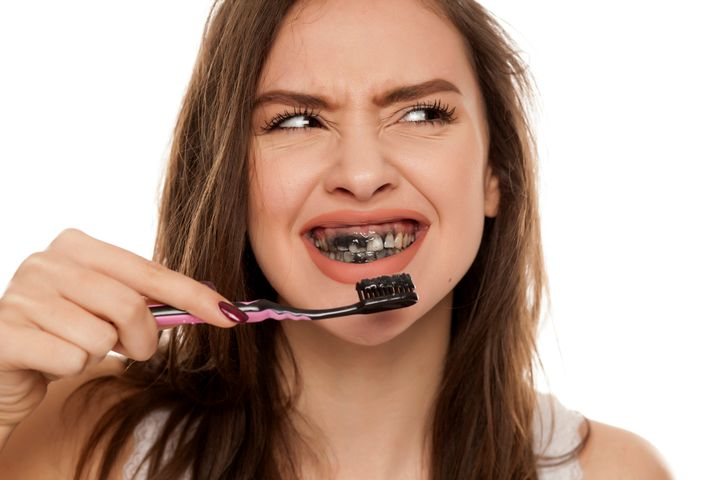
What is the most environmentally friendly charcoal?
When it comes to charcoal, the most environmentally friendly option is usually lump charcoal made from sustainably harvested hardwood. Here’s why:
Lump charcoal is made by burning pieces of hardwood in the absence of oxygen, which leaves behind chunks of carbonized wood. This process is more energy-efficient and produces less greenhouse gas emissions than making charcoal briquettes, which are often made by compressing sawdust and other wood scraps with binders and additives.
Sustainably harvested hardwood means that the wood used to make the charcoal comes from responsibly managed forests, where trees are harvested in a way that allows the forest to regenerate naturally. This helps to prevent deforestation and ensures that the forest ecosystem can continue to provide habitat for wildlife and other benefits.
Lump charcoal is typically free from additives and chemicals, which means that it burns cleaner and produces less ash than briquettes. This is important because ash can contain heavy metals and other pollutants that can leach into the soil and water.
When shopping for environmentally friendly charcoal, look for products that are made from sustainably harvested hardwood and do not contain additives or fillers. You may also want to consider purchasing charcoal made from invasive plant species, such as mesquite or eucalyptus, which can help to control the spread of these plants in certain regions.
Is bamboo charcoal eco-friendly?
Bamboo charcoal is often marketed as an eco-friendly alternative to traditional charcoal, but whether it is truly environmentally friendly depends on how it is produced and used.
Bamboo is a renewable resource that grows quickly and does not require pesticides or fertilizers to grow. When bamboo is carbonized (heated in the absence of oxygen), it produces charcoal that can be used for a variety of purposes, including air purification, water filtration, and cooking fuel.

Here are some potential environmental benefits of bamboo charcoal:
Reduced carbon emissions: Because bamboo grows quickly and is harvested frequently, it can potentially sequester more carbon than slower-growing trees. In addition, the carbonization process used to produce bamboo charcoal can produce less greenhouse gas emissions than the production of traditional charcoal.
Reduced waste: Bamboo charcoal can be made from bamboo waste products, such as sawdust or branches, which might otherwise be discarded.
Renewable resource: Because bamboo is a fast-growing plant that can be harvested repeatedly without the need for replanting, it is considered a renewable resource.
However, there are also some potential environmental concerns to consider:
Energy use: The production of bamboo charcoal typically requires significant amounts of energy, particularly if it is being produced on an industrial scale.
Chemical use: Some bamboo charcoal products may be treated with chemicals or other additives to enhance their properties, such as the ability to absorb odors. These additives may be harmful to human health or the environment.
Use of non-biodegradable packaging: Some bamboo charcoal products may be packaged in non-biodegradable plastic, which can contribute to plastic waste and pollution.
Overall, bamboo charcoal can be an eco-friendly alternative to traditional charcoal in certain contexts, particularly if it is produced using sustainable and environmentally friendly practices. However, it is important to research the specific product and its production methods to determine whether it is truly environmentally friendly.
In what ways does toothpaste affect the environment?
Toothpaste can affect the environment in several ways, including:
- Water pollution: Toothpaste can contain chemicals such as triclosan, which can be harmful to aquatic life when they are washed down the drain and end up in rivers, lakes, and oceans.
- Microplastics: Some toothpaste products contain microbeads, which are tiny plastic particles that can pollute waterways and harm marine life.
- Packaging waste: Toothpaste tubes and another packaging can contribute to plastic waste if they are not recycled or properly disposed of.
- Carbon footprint: The production and transportation of toothpaste can generate greenhouse gas emissions that contribute to climate change.
Here are some steps you can take to reduce the environmental impact of your toothpaste use:
- Choose natural or eco-friendly toothpaste products that are free from harmful chemicals and microbeads.
- Look for toothpaste products that are packaged in recyclable or biodegradable materials.
- Use toothpaste sparingly to reduce the amount of product that is washed down the drain.
- Turn off the tap while brushing your teeth to conserve water.
- Consider using a bamboo toothbrush or other eco-friendly oral care products.
By being mindful of the environmental impact of toothpaste and taking steps to reduce waste and pollution, we can help to protect the planet and ensure a healthier future for all.
Is fluoride-free toothpaste healthier?
The use of fluoride in toothpaste is a controversial topic. Fluoride is a mineral that can help prevent tooth decay and strengthen tooth enamel, and it has been added to public water supplies and toothpaste for many years. However, some people are concerned about the potential health risks of fluoride, such as fluorosis (a cosmetic condition that affects the appearance of teeth) and possible effects on brain development.
Fluoride-free toothpaste may be a healthier option for people who are concerned about these potential risks, but it’s important to note that fluoride does have proven benefits for oral health. Some studies have shown that fluoride can significantly reduce the risk of tooth decay and cavities, especially in children.
If you choose to use fluoride-free toothpaste, there are some things you can do to help maintain good oral health:
Brush your teeth regularly: Regardless of whether you use fluoride toothpaste or not, it’s important to brush your teeth twice a day with a soft-bristled brush.
Use natural or non-toxic toothpaste: If you choose to use fluoride-free toothpaste, look for products that are made with natural and non-toxic ingredients, and that has been tested for safety and efficacy.
Eat a healthy diet: A diet that is high in sugar and processed foods can increase the risk of tooth decay, regardless of whether you use fluoride toothpaste or not.
Visit the dentist regularly: Regular dental checkups and cleanings can help prevent and treat tooth decay and can help you maintain good oral health overall.
Ultimately, the decision to use fluoride-free toothpaste is a personal one that should be made based on your own health concerns and preferences. If you have questions or concerns about fluoride or your oral health, it’s always a good idea to speak with your dentist.
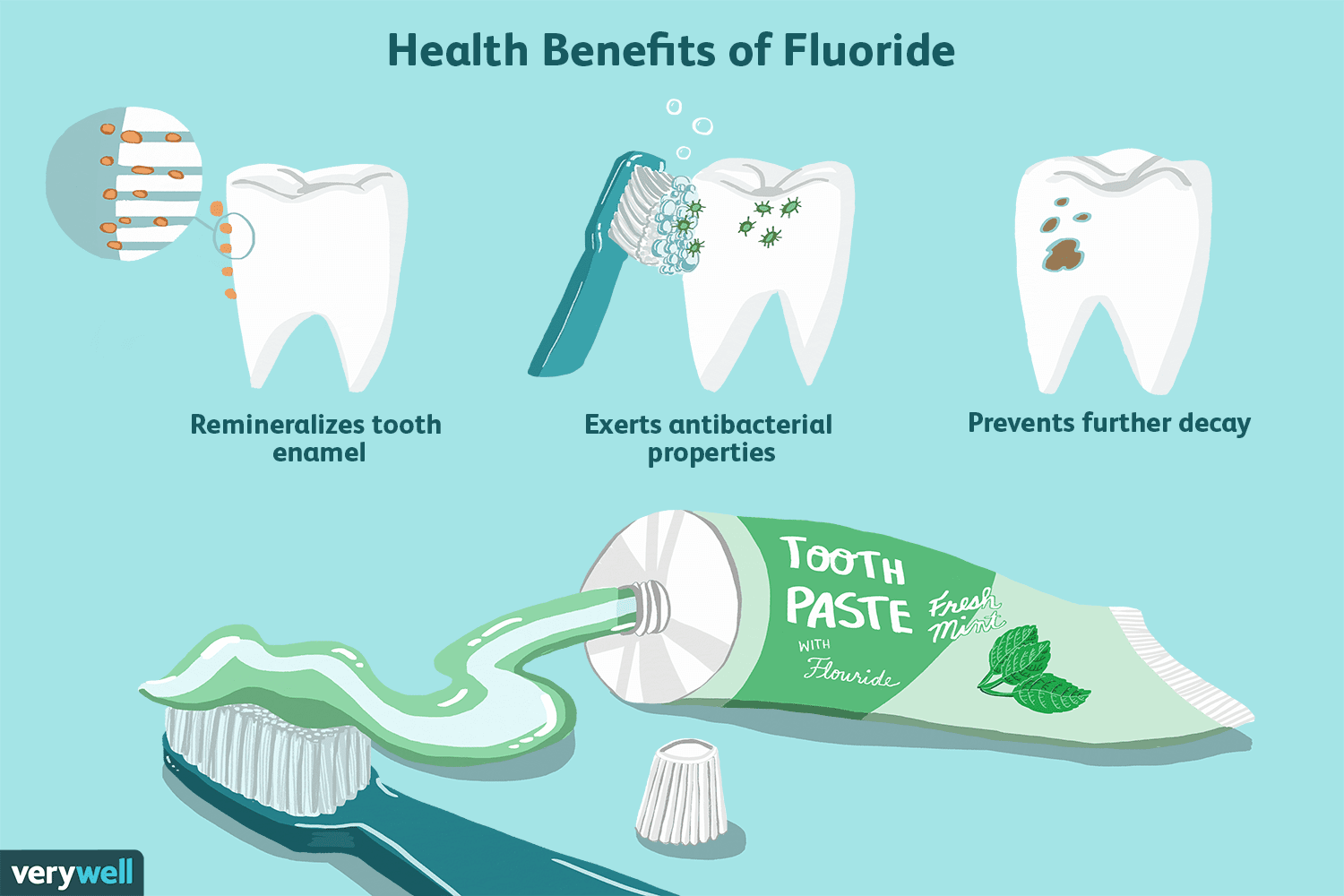
Leave a Reply